Video Feature & Web-Exclusive Interview
Musician: BILLY CROCKETT
Video: “The Question Pool” from the new album In Session
BILLY CROCKETT, NEW ALBUM IN SESSION, DONATES 100% OF SALES BETWEEN NOW AND MAY 15, 2020 TO COVID-19 RELIEF
Billy Crockett is a performing songwriter, producer and multi-instrumental session man with a dozen albums, decades of memorable songs and tours. He is creative director of Blue Rock Artist Ranch and Studio in the scenic Texas Hill Country, engaging a wide community of artists, producing songs, concerts, live broadcasts and a journal on creative process. Crockett is a guitar clinician for Yamaha who has been featured on BMI’s songwriter panel at SXSW, the TV series Troubadour Texas and the Academy of Gospel Music Arts.
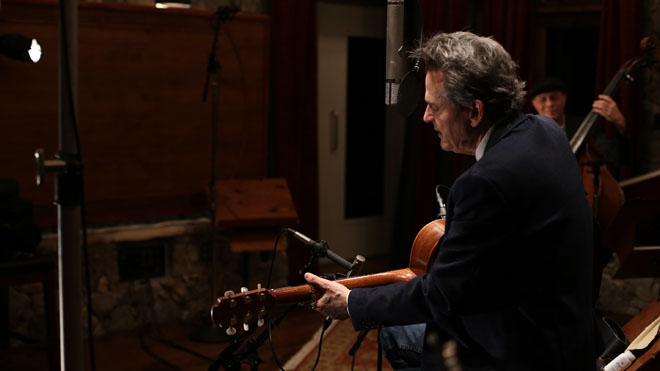
If you haven’t been lucky enough to see this amazing musician perform live, you are in for a treat. In Session reveals one rare day in the studio with Billy Crockett and bassist Roscoe Beck (best known for his work with Leonard Cohen, along with Jennifer Warnes and Eric Johnson). This is Crockett at his most essential, energized by a musical friendship, exploring the heart of handpicked songs from his catalog, and covers of classics. Crockett says, “The songs are some of my favs. My respect for bassist Roscoe Beck is immense. His fearlessness inspires me. It was half-remembered, half invention—in other words, the famed sweet spot of collaboration.”
Crockett’s life has been one of gratitude—giving to his community, especially offering rare opportunities to artists, songwriters and fans with his incredibly creative oasis, the Blue Rock Artist Ranch and Studio (BlueRockTexas.com). This album is a continuation of that giving spirit.
Download the album now through May 15, 2020: https://billycrockett.com/music and 100% album revenue goes to Thanks-Giving Foundation’s COVID-19 relief initiative. “When you donate through the In Session window—you get to help them and get the record,” says Crockett.
We talked with Billy Crockett about his passion for songwriting, how the interpretation of his own songs has grown through the years, the fascination of capturing a live performance at its finest and what continues to inspire his creative process.
BILLY CROCKETT Interview with M Music & Musicians magazine publisher, Merlin David
How did you get the idea for In Session—one rare day in the studio, no tricks, with you and Roscoe Beck—just guitar, voice and bass?
Roscoe has the touch, and the 200 year old Italian bass, that energizes me and my songs. I brought him to Blue Rock Studio when I was producing a Darryl Purpose record and for a couple of live broadcasts during SXSW. He was between tours with Leonard Cohen, or he was just in from New York City playing with Lyle Lovett on Letterman. He was always kind and prepared—and had great stories. So the vibe was great. I began to ask him to play on my records. We were having fun, did some shows around Texas. One day after coming off a good tour, I asked him if he’d come to the studio for “whatever.” Maybe I didn’t want it to slip away. He was up for it. We set-up some mics and a couple of cameras, and we just played until we were tired.
Tell us about the studio set-up.
The production ethic is one of my favorite styles of sessions. It’s a super-quiet room, and the room itself is part of the character. Everything in the signal chain is pristine. Great mics, unprocessed audio (no EQ, no compression)—it comes in nice and transparent. We tighten it up in the mix so it’s ready for the big world. It’s exciting for me—to have a record that’s dynamic and pristine. It kinda reminds me of the good old days.
What did learn about yourself while recording this album?
I can over-think these things. Finally, I didn’t. The chemistry of this project was a kind of communion of songs (some ancient, some new) and the energy of the musical friendship. I just let that flow—for a change.
How did the idea of “The Question Pool” come to you?
I come from a faith culture that, in many ways, wanted to “solve” the big dilemmas rather than savor them. I guess I’m wired up backwards. Hey, but so was Socrates. A writer’s gotta bring his emotional dissonance and say it out loud. My co-writer on this song, Milton Brasher-Cunningham, was game, too. Thank God.
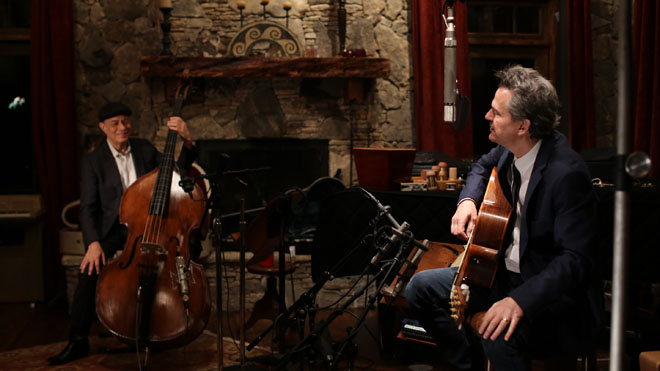
When did this song take on new meaning for you?
I don’t know what happened to this song on that session, but it was probably the moment that made it all come into focus from me. That’s a song from quite a few years (and records) back. To be able to look at it from 25 years of life later—to come back and sing about what was heartfelt and vitally important to me then, I discovered that it had become a completely different vitality now. Sarah [Randolph] showed it to me and said, “Do you guys realize what you just did?” I showed it to others, and people thought it was timely. I realized, somehow it’s on time for now. It made me realize that this session was trying to pull the energy from wherever it was. When this song is stripped down like this—people feel like they’re really hearing your story, and they’re seeing the images. It’s somehow far more personal.
Which song surprised you—especially doing it in this unique way?
“You’re a Mean One, Mr. Grinch.” It was just fun to do. It was something we had played around with. I think it’s a brilliant song from Theodor Geisel—Dr. Seuss. It’s just the language, and the way that the melody and chords float by. We came at it with a very rough frame of the memory of the song. It’s the comic element of the record. We did it last, and only did one take. We let it happen. It’s kind of a dream state of trying to remember a song and having fun with it. I’m really proud of it because it’s one of those rare times where I opened it up just to see what happens.
Is there one song you are especially glad made it onto this recording?
The classic “Nature Boy” was huge in 1948 for Nat King Cole. I have come to love the song, and have played it at the end of many shows. But never had I recorded it—till now. And with Roscoe, it’s an event. The more I learn about it, the more reverence I have for that song. I think there is also some echo of a connection with the story The Little Prince.
Who originally inspired you to write songs?
Songs and songwriters were my liberators. I had never been free to feel much. It wasn’t done at my house. Jackson Browne entered with “The Pretender” and “Fountain of Sorrow.” Then, Cat Stevens with “Father and Son” and CS&N’s “Our House.” Mavis Staples. Roberta Flack. You can imagine what might have dawned on a 15 year-old kid. It was an entire language to know things, inside and out.
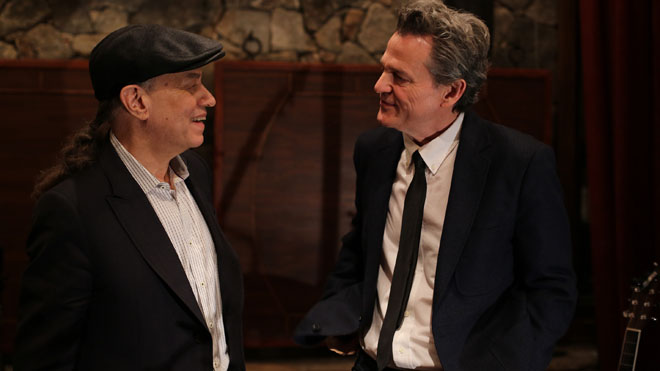
When did something unique inspire you to write one of these songs?
We tracked my song “Ghosts.” I was thinking of empty chairs at a Thanksgiving reunion—a missing uncle, then a grandparent. The holiday is forever marked by who is not here. Of course, I was at the kids table then. Now I realize that in my memory, they are exactly as old as I am now. So many “ghosts I wish I’d known.”
Do you remember the first time you heard one of your songs on the radio?
Oh, yes—the song was “Love Waiting” and I heard it on a Nashville station when I was 25. It was a laugh out loud, pull the car over, thrill. I was on one of those little circle roads outside of Nashville. That song had been with me for several years. I had demoed it several times. I played it for publishers—sung it a whole bunch. I recorded it with a band in my house—as good as we could. Then, I had actually gotten the attention of a major label in my genre. After they got excited about it—then, the waiting began—and more waiting. It was only a couple of years of wondering “Is this ever going to happen?” (Laughs) Then, we got the green light.
How did the song change in a real studio?
We went into the studio, and once we added Dennis Holt on drums and Jon Goin on electric guitar, and a few others, that song was transformed into the most beautiful thing. I had never had that experience. It was still my guitar, my voice and my song co-written with my pal Kenny Wood. What was in the can was equal to any other feeling I’d ever had. Then, hearing it on the radio! No one was with me when I first heard that song in my car. I want to weep right now thinking about that moment. The road up to that moment was filled with so much longing. It was incredibly deep and validating to hear your song on the radio. And then, you drive on. In a way, it’s a before and after moment—you’re different, but you can never get enough love—so you’re still looking. (Laughs)
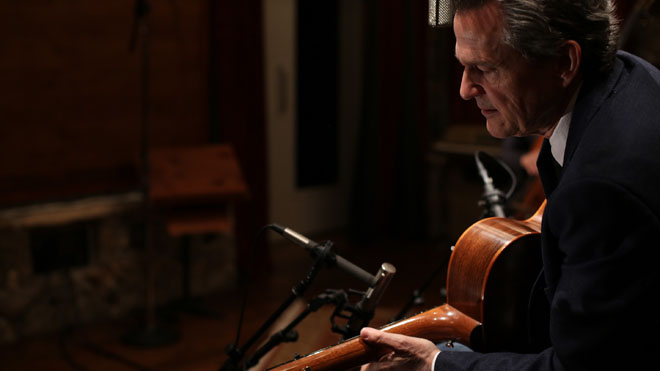
How do you remain hopeful during tough socio-political times, including this pandemic?
I suppose it’s a cocktail of the following: Reading something honest, a bit of exercise and working on something grand with my wife, Dodee. And having a small group of writers to belong to—it seems hope requires expression. (Laughs) Also, empathy and connection—and Greta [Thunberg].
All In Session album revenue from orders now through May 15 will go to relief for frontline healthcare workers and first responders in the fight against COVID-19 (“Serving Up Gratitude”).
I’m from Dallas, and the Thanks-Giving Foundation (Serving Up Gratitude) is all about dialogue—finding common ground—welcome. I have come to appreciate these qualities and aspirations. In the pandemic, they are spearheading a win-win collaborative effort that brings kindness and good meals to first responders and helps keep restaurants in business. It’s a brilliant model to cross-pollinate different elements of the city—first responders, healthcare workers, fire, police—all aspects of community. They are buying meals from 50 local Dallas-area restaurants—to help and give them sustainable revenue. It’s gratitude in action. When you donate through the In Session window—you get to help them and get the record.
Where can new fans get more info and stay updated?
To new fans, I say “Thanks.” The best way to stay updated is to get in the newsletter circle—for new music and shows, exclusives and first announcements.
www.BillyCrockett.com
FB: https://www.facebook.com/billycrockettmusic/
YT: https://www.youtube.com/channel/UCsFLQ2EAehB-bgKMznjfaYQ
Blue Rock Studio: www.bluerocktexas.com
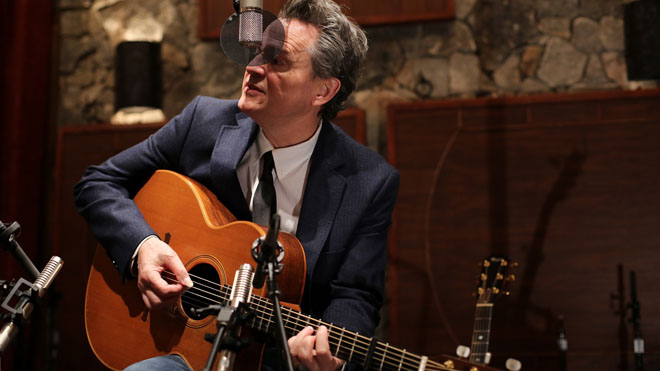
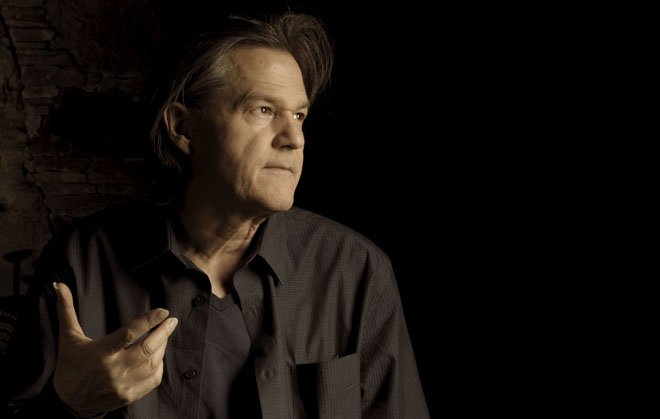



comment closed